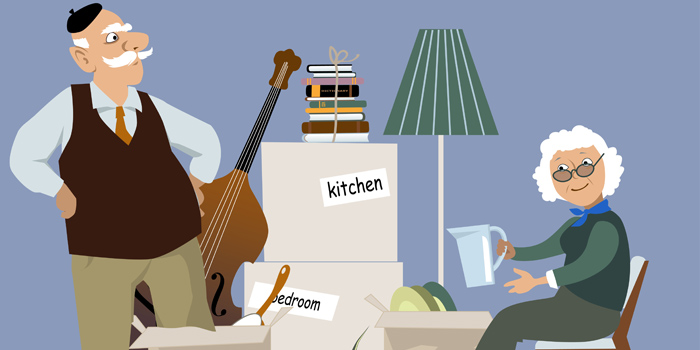Over the years, a senior may have steadily increased the size of the home in which they live. If a number of children were part of the family, the need for a larger home may have increased the need for size. But, as the children move away, the house does not shrink. It can become a lot of work to maintain — or keep clean. Having a big house may look luxurious, but it can be a difficult environment for a senior. Multiple levels can invite falling. Large square footage can be more of a burden than a luxury.
The Case for Downsizing
A smaller home or apartment can have significant advantages over a large home. As a person’s mobility is reduced, a smaller space can certainly be easier to negotiate. A home without stairs makes moving around easier and reduces the opportunities to fall.
It also takes much less physical energy to manage a smaller living space. Smaller homes provide seniors with greater security and comfort when they do not have to negotiate large and sometimes unfamiliar spaces.
Before You Decide
Before getting into the downsizing conversation, evaluate your loved one’s overall quality of life and situation. Moving can be emotionally challenging for a senior and may do more damage than good. Plus, if the home is paid for and expenses are limited vs. paying for a new place to live added to the cost of moving, it may not be a good trade.
Staying put and limiting the living space to the first floor may resolve a number of issues. Getting regular home care can help manage the needs of your senior and keep the premises safe and clean.
And Then There Is The “Stuff”
Your loved one may have the right-sized home but oversized contents. Over many years of life, people accumulate “stuff.” Some of it may be heirloom quality. Some of it clearly is not. They may be hanging on to clutter that needs to be removed, but they may be holding on to it because of memories or because they physically are not capable of removing it.
Often, seniors want to keep things that they perceive the next generation will appreciate the same that they had. Sadly, that is often not the case, and upon their passing, dumpsters get filled with memories.

